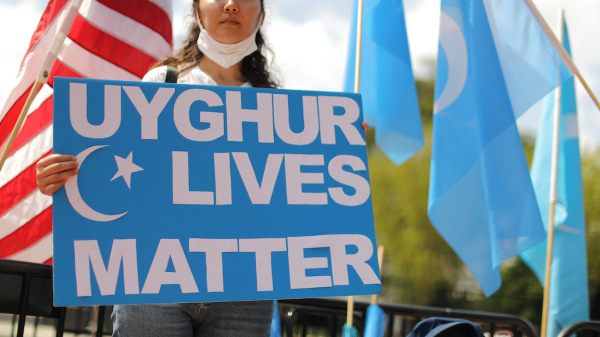What’s happening to the Uyghurs?
According to ForcedFashionLabour, more than one million people — Uyghurs and other Muslims — have been rounded up and placed in camps. These camps, in the Xinjiang region of China, produce a wide array of products. If you have items in your home that were made in China, the odds are good they were made in Xinjiang and by slave labor.
Axios put out a report on this in January. They report that this problem is much bigger than originally thought and:
Xinjiang products are deeply integrated into lucrative supply chains around the world. The Chinese Communist Party’s official embrace of coerced labor will force Western governments and institutions to choose between pleasing business leaders or enforcing universal human rights values.
Axios
China admits it sends people to these camps but claims this is for their own good but they say they are giving people with no income a good-paying job. The truth is more sinister. China relies on an unpaid labor force to pick cotton, tomatoes, and other crops.
The BBC found:
References to “guiding” the pickers to “consciously resist illegal religious activities” indicate that the policies are designed predominantly for Xinjiang’s Uighurs and other traditionally Muslim groups.
Government officials first sign “contracts of intent” with the cotton farms, determining the “number of workers hired, the location, the accommodation and wages,” after which pickers are then mobilised to “enthusiastically sign up”.
There are plenty of clues that this enthusiasm is less than whole-hearted. One report describes a village where people were “unwilling to work in agriculture”. Officials had to visit again to perform “thought education work”. Eventually, 20 were sent off, with a plan in place to “export” 60 more.
The BBC
What we all can do to help
- Sign the #BoycottGenocide pledge.
- Tell your U.S. House Rep to support the Uyghur Forced Labor Prevention Act (HR 1155).
- Tell your Senators to support the Uyghur Forced Labor Prevention Act (S 65)
- Go to these brand’s social media channels and tell them to stop using #ForcedLabor to make their products. You can learn more about that here.
- Tell your favorite brands to sign this call to action.
Keep up with how you can help by going here.
For More Information
“Eight things you can do to help Uyghurs in a time of genocide,” Uyghur Human Rights Project
End #ForcedLabourFashion Now – campaign website

